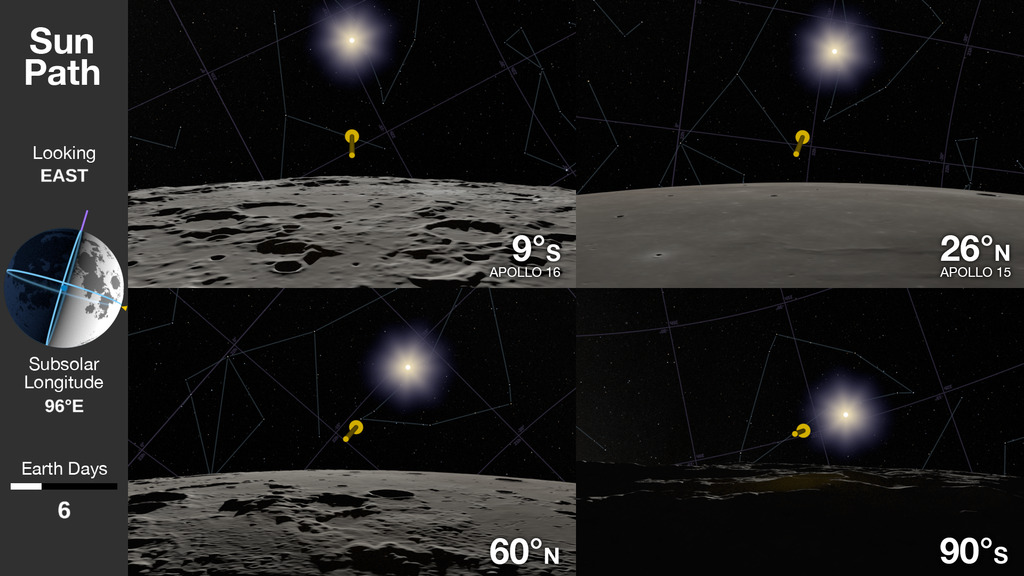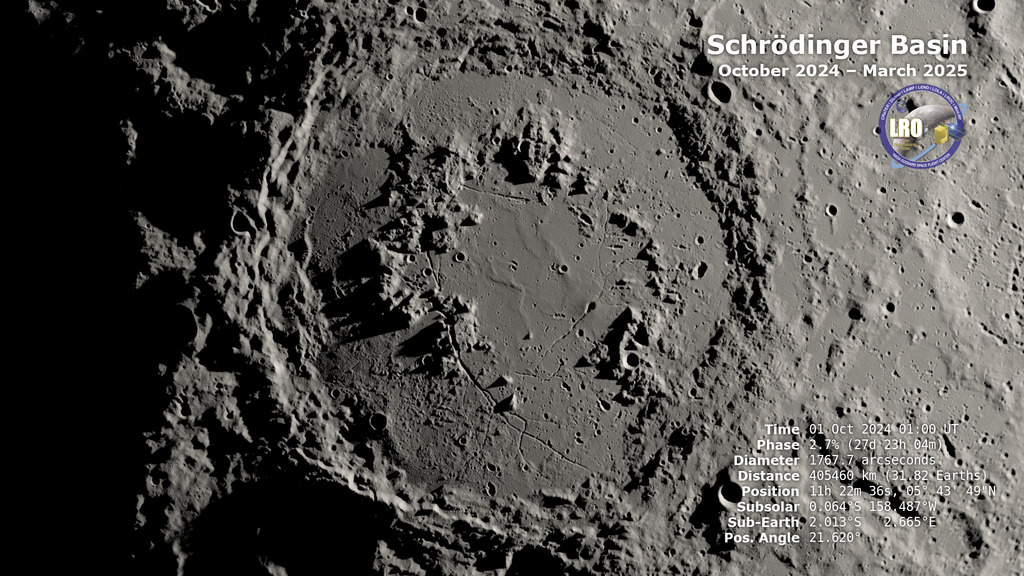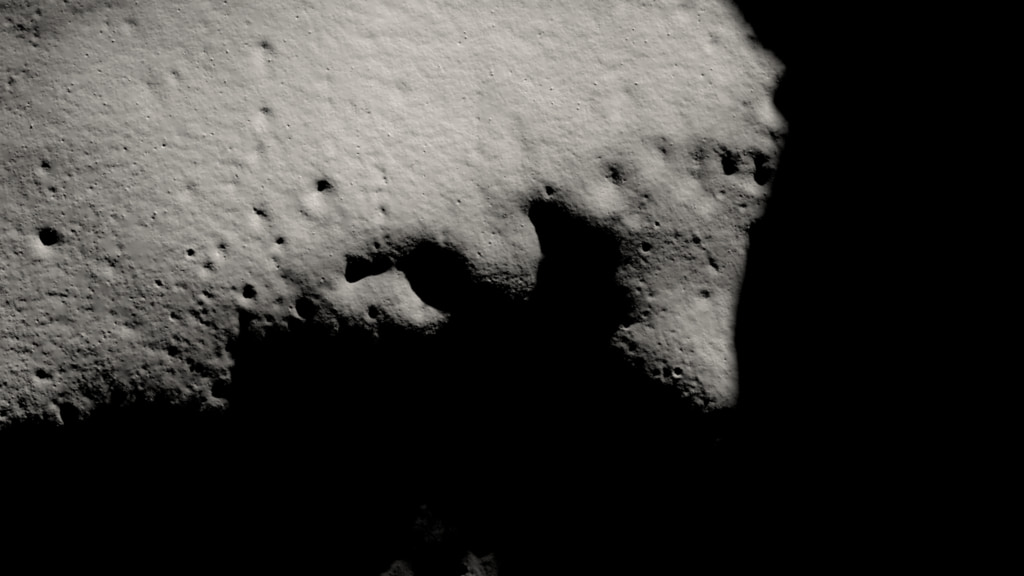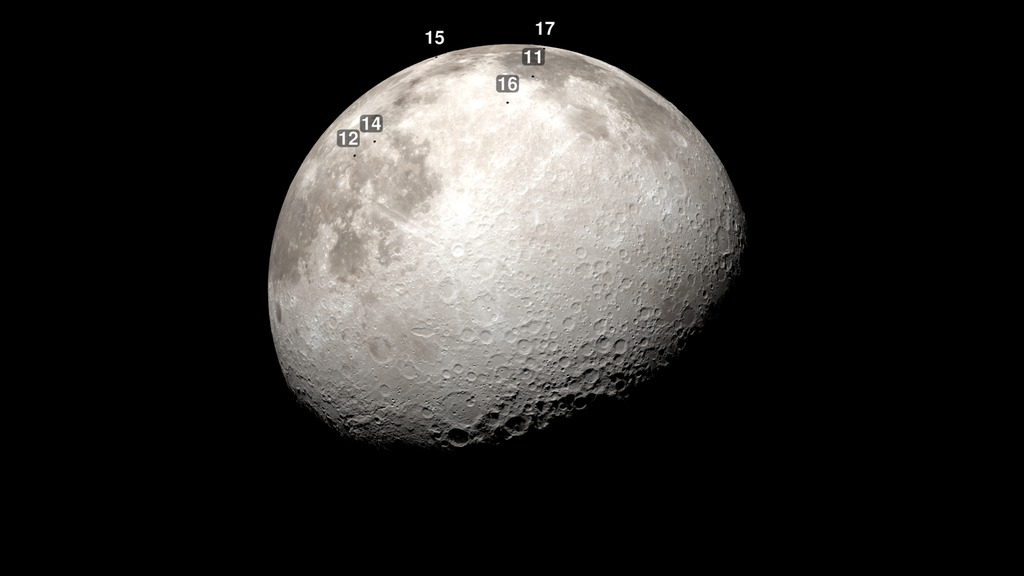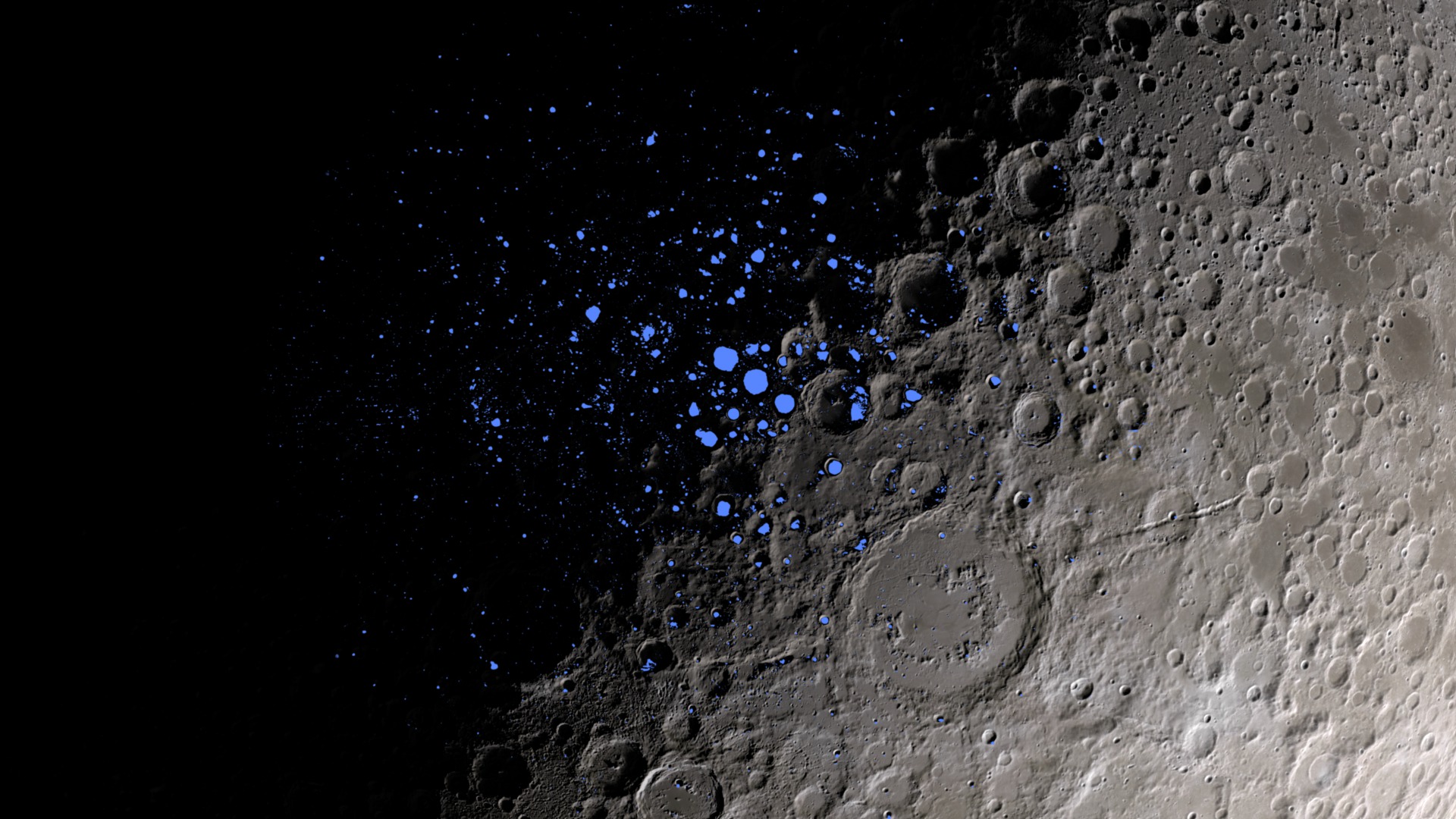Illumination at the Moon's South Pole, 2023 to 2030
2023: Sunlight and shadow within 2 degrees of the lunar South Pole, rendered at two-hour intervals for a year.
The visualizations on this page simulate the lighting at the South Pole of the Moon in the years 2023 to 2030 at two-hour intervals, a total of 35,064 time steps or frames. The field of view encompasses the area south of 88° south latitude.
Global terrain mapping by Lunar Reconnaissance Orbiter's laser altimeter, LOLA, makes it possible to simulate sunlight and shadow on the Moon at any date in the past or future. This will be vital for planning exploration of the lunar South Pole, where the low Sun angle and rugged terrain produce a uniquely challenging lighting environment.
2024: Sunlight and shadow within 2 degrees of the lunar South Pole, rendered at two-hour intervals for a year.
2025: Sunlight and shadow within 2 degrees of the lunar South Pole, rendered at two-hour intervals for a year.
2026: Sunlight and shadow within 2 degrees of the lunar South Pole, rendered at two-hour intervals for a year.
2027: Sunlight and shadow within 2 degrees of the lunar South Pole, rendered at two-hour intervals for a year.
2028: Sunlight and shadow within 2 degrees of the lunar South Pole, rendered at two-hour intervals for a year.
2029: Sunlight and shadow within 2 degrees of the lunar South Pole, rendered at two-hour intervals for a year.
2030: Sunlight and shadow within 2 degrees of the lunar South Pole, rendered at two-hour intervals for a year.
Credits
Please give credit for this item to:
NASA's Scientific Visualization Studio
-
Visualizer
- Ernie Wright (USRA)
-
Planetary scientist
- Noah Petro (NASA/GSFC)
-
Technical support
- Laurence Schuler (ADNET Systems, Inc.)
- Ian Jones (ADNET Systems, Inc.)
Release date
This page was originally published on Wednesday, October 5, 2022.
This page was last updated on Tuesday, February 18, 2025 at 12:11 AM EST.
Missions
This page is related to the following missions:Series
This page can be found in the following series:Datasets used
-
DEM (Digital Elevation Map) [LRO: LOLA]
ID: 653 -
DE421 (JPL DE421)
ID: 752Planetary ephemerides
This dataset can be found at: http://ssd.jpl.nasa.gov/?ephemerides#planets
See all pages that use this dataset
Note: While we identify the data sets used on this page, we do not store any further details, nor the data sets themselves on our site.

